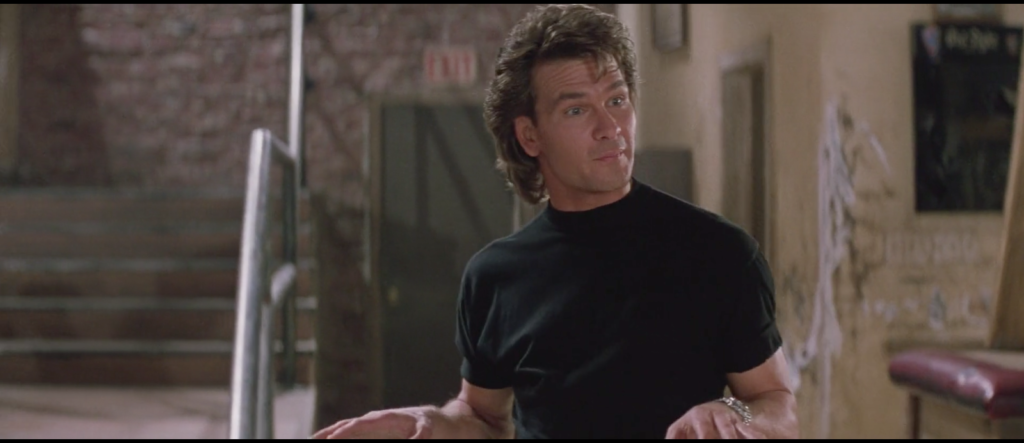“This is the new Double Deuce,” says Frank Tilghman. We are at the start of an all-hands staff meeting, and Tilghman is pointing to the concept art for the bar’s redesign. But standing nearby is his latest hire, Dalton. It is through Dalton, with Dalton, in Dalton that the new Double Deuce will be achieved. Dalton embodies the new Double Deuce. He is its future.
When Dalton takes over as cooler he becomes more than just the chief bouncer. His role is not to handle a series of discrete incidents, but to institute sweeping reforms that will eliminate such incidents forever. “It’s going to change,” he states—not a threat, not a promise, a fact. His bouncers, too, must change for this to take place. As below, so above.
Bouncing on the Dalton Path is a matter of following “three simple rules.”
This, once more, is the third.
3. Be nice. (continued)
We’ve established the Third Rule’s Great Commandment, and we’ve examined its combination of theory and praxis. Today’s lesson follows closely in the latter’s footsteps. Almost literally, insofar as it’s about walking.
You’ll recall that the previous lesson introduced the parable of the man who gets in your face and calls you a cocksucker. In the lines that follow, Dalton continues the story. “Ask him to walk,” he advises his bouncers regarding such a person, “but be nice. If he won’t walk, walk him, but be nice. If you can’t walk him, one of the others will help you, and you’ll both be nice.”
By now his voice is pleasant, almost cheerful, the “it’s my way or the highway” edge to it long gone. It stands to reason, since the whole point of this passage is that neither he nor anyone else need walk his way alone. You can do so side by side, arm in arm, perhaps even hand in hand. Indeed his delicate double-handed gesture when he says “and you’ll both be nice” suggests nothing so much as a pair of children playing “Heart and Soul” together on the piano in the school music room.
This is the least difficult portion of the rules so far from which to glean the hidden moral instruction beneath the practical element. By way of comparison, eep in mind that “turn the other cheek” was as literal as it gets, at least within the context of the sentence in which Jesus introduced the concept: You get socked in the side of the face, you offer up the other side too. Yet hundreds of millions of people over thousands of years had no trouble figuring out what he was getting at.
I’d like to think that Jack, Hank, and Younger understand that Dalton is talking about more than just the problem introduced by Hank at the start of the Giving of the Rules: “A lot of the guys who come in here, we can’t handle one-on-one, even two-on-one.” Aiding a fellow bouncer in the ejection of a particularly recalcitrant or powerful patron is important. Even reiterating that the purpose of bouncing is to bounce the patron out of the bar, not bounce his head off of it, is important. But is “If he won’t walk, walk him,” so far removed from “it was then that I carried you”? Is “one of the others will help you” so different from “For where two or three are gathered together in my name, there am I in the midst of them”? Seeing yourself as part of a whole that includes the patrons, the bouncers, and the bar—that is the key that unlocks the new Double Deuce, the nice Double Deuce, a house with many mansions. When you walk through the storm, hold your head up high, and don’t be afraid of the dark.
Tags: be nice, bouncers, dalton, hank, staff, the giving of the rules, the rules, the third rule

